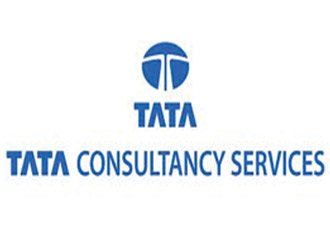Fired Americans say TCS gave their jobs to Indians: WSJ

A group of experienced American professionals has accused Indian outsourcing giant Tata Consultancy Services (TCS) of firing them on short notice and filling many of their roles with workers from India on H1-B visas.
The Wall Street Journal Friday cited the American workers as saying TCS illegally discriminated against them based on their race and age, firing them and shifting some of their work to lower-paid Indian immigrants on temporary work visas.
Since late December, at least 22 workers have filed complaints with the Equal Employment Opportunity Commission against TCS, whose clients have included dozens of the US’s biggest firms, according to the Journal.
The American former TCS employees are Caucasians, Asian-Americans and Hispanic Americans ranging in age from their 40s to their 60s and living in more than a dozen US states, it said. Many have master’s of business administration or other advanced degrees, according to the complaints reviewed by it.
READ: California judge says TCS will have to defend itself in 2015 discrimination case (December 28, 2017)
While companies often conduct layoffs that affect workers with more seniority, American professionals say TCS broke the law by targeting them based on protected characteristics of age and race. They say the company’s move demonstrated preferential treatment to Indian workers in the US on the coveted visas.
A TCS spokeswoman told the Journal allegations that the company engages in unlawful discrimination are meritless and misleading. TCS has a strong record of being an equal opportunity employer in the US, acting with integrity in its operations, she was quoted as saying.
The complaints, according to the Journal revive questions about how Indian IT companies use H-1B visas.
READ: Infosys, Cognizant, TCS violating H-1B work visa norms: senior US official (April 24, 2017)
“The visas are designed for skilled foreign workers but have for years led to concerns that Americans are being displaced by cheaper foreign workers with lesser qualifications,” it suggested.
Many big US tech firms such as Google, Microsoft and Meta, which have different business models than outsourcers, use the H1-B visas to employ staff who attract high wages and have come under less criticism, according to the Journal.
Congress allows roughly 85,000 new H-1B visas a year, with applications often far outstripping that number.
The Journal cited former TCS workers as saying that, despite years of positive reviews and often bonuses for their work for clients in areas such as finance, operations and supply-chain management, they were abruptly taken off projects last year.
Many say TCS management thwarted their efforts to find new assignments at the company, even when asked by clients to continue on their projects, and were then terminated. Some said the work they were doing was taken over by younger, less-experienced Indian nationals on H-1B visas.
In their complaints, the former employees cite comments that TCS’s global human resources head Milind Lakkad made in an interview with Indian media last year.
He was quoted as saying TCS is trying to reduce the number of Americans it employs in the US and would like to provide more opportunities to Indians there, according to the report.
One former worker said in a complaint that TCS human-resources staff told employees in an all-hands meeting that the company planned to use money saved by closing down a unit that employed many of American workers to provide jobs to more Indian nationals in the US.
“TCS has a significant issue on its hands,” Peter Bendor-Samuel, chief executive of Everest Group, a Dallas-based firm that advises companies on outsourcing, was cited as saying referring to the complaints. “The law is largely on the employees’ side,” he said.
